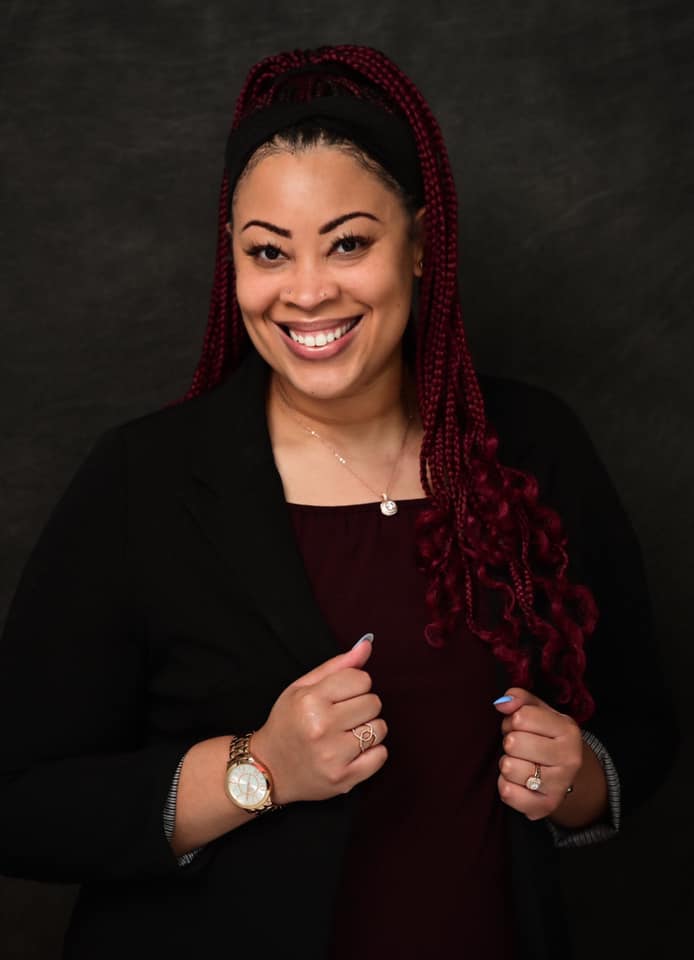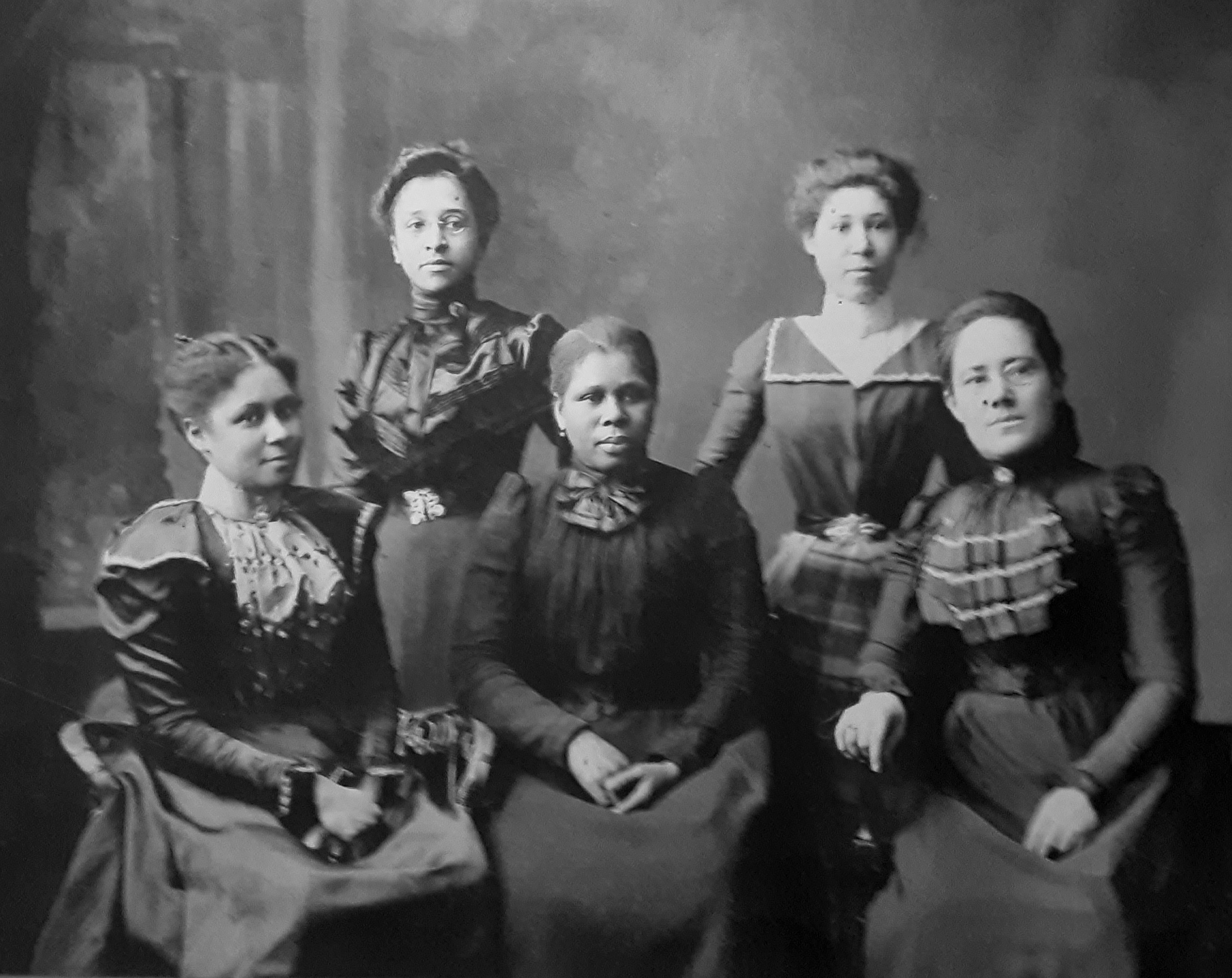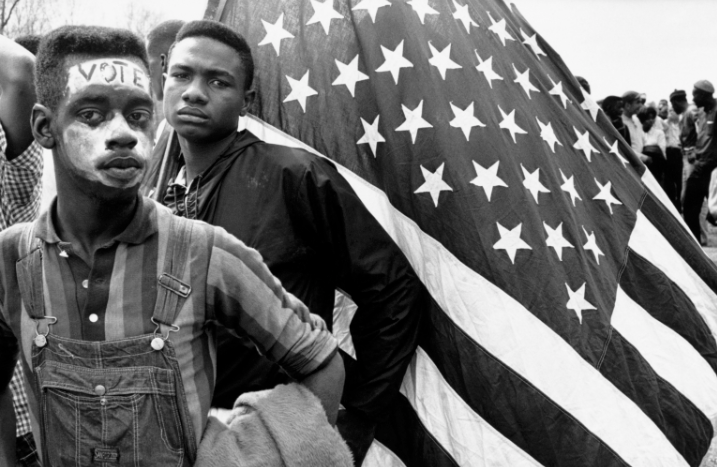Ph.D. candidate helps curate Voting Matters exhibit showing the fight for the African American right to vote
Election Day is fast approaching and many agree 2020 is a historical election year. It’s a sentiment Stacey Deering, a Ph.D. candidate (ABD) in political science and instructor for the College of Liberal Arts and Sciences, shares.

For over a year, Deering has worked on the Voting Matters exhibit at The Charles H. Wright Museum of African American History, an interactive experience that allows visitors to walk through time and learn about the fight for African Americans’ and women’s right to vote in the U.S.
Her current role as a research expert for The Wright stems from her time as an intern for the Humanities Clinic, which hires graduate students to work as paid interns with Detroit nonprofits and small businesses. In 2018, Deering spent her internship at the museum, planned and hosted a three panel series on the Detroit Charter School Movement. In 2019, she interned at The Wright again, and this time, CEO Neil A. Barclay requested that she personally work on the Voting Matters project, an idea he had to commemorate the 100-year anniversary of the women’s suffrage movement that happened to align with a historical election year, Deering said.
“Neil had a vision to show the history, the struggle and hurdles of trying to obtain the right to vote and protect the right to vote with the goal of motivating people to get out and vote across generations,” she said.
So, Deering got to work researching, deep diving on Google, pouring over books written about African Americans and women activists, gleaning information from other museums across the country and pulling artifacts from foundation websites. She was amazed by what she found.
“I teach American government, urban politics, public policy, and even I had never come across most of this history.”
What really struck her was the role African American women played in the women’s suffrage movement.

“When you read history books, take history classes you see Elizabeth Cady Stanton, Susan B. Anthony, but you don’t see Mary Church Terrell or Ida B. Wells, you see her in other areas, like the abolitionist movement. Because the women’s suffrage movement began in 1848 when slavery was still legal, Black women had to organize their own suffrage movement before they were allowed to join the main movement, and they weren’t just strong, they were trailblazers, they were getting Ph.D.s and becoming educators and principals of schools.”
She hadn’t realized that African American women were empowered to be activists so early in American history.
Your vote matters
The result of Deering’s research is a 5-part exhibit that spans from Pre-Reconstruction to present day and covers the women’s suffrage movement, gerrymandering, the electoral college, voter suppression and the fight for African Americans’ right to vote. It spotlights the 15th Amendment, which gave African American men the right to vote, the 19th Amendment that gave women the right to vote, the Voting Rights Act of 1965, which prohibits racial discrimination in voting, and the trailblazers that fought to make them so.
The exhibit opened to the public on September 27, 2020 and will run through May 9, 2021. After that, the women’s suffrage piece will remain at The Wright, and the rest will be condensed and sent to other museums around the country.
Still, it’s important to Deering to educate the masses that won’t necessarily make it to these exhibits.
“Right now, we are working on curriculums that teachers can use to educate their students because history books only have so much history in them.”

The goal is to publish a book along with teaching aides that teachers can use in the classroom and parents can use at home. The museum is also working on an app that’s currently in its’ pilot stage for those who visit the museum to download complimentary information that they can take home. Deering has also been hosting webinar sessions since mid-September on the history of voting and how to understand your ballot.
“I always thought my most memorable election would be in 2008 when President Obama was elected.” But being an intricate part of the Voting Matters project and educating her community has made this election year memorable, too, she said.
“I have been able to help people become informed voters and not feel like their vote doesn’t matter, because it does. When you look at this exhibit and you read the history, you feel compelled to vote. You feel like, after all of this, after everything this country has been through, how could I not?”
To comply with CDC social-distancing guidelines, guests to The Wright are encouraged to register in advance to gain entry. Guests in groups of no more than 10 are allotted a 20-minute window during which they must arrive at the museum to gain entry. Individuals will also be given disposable stylus pens to interact with pictures and screens.
You can also share your voter experience stories by submitting a one-minute video online with the chance to become part of the exhibit.